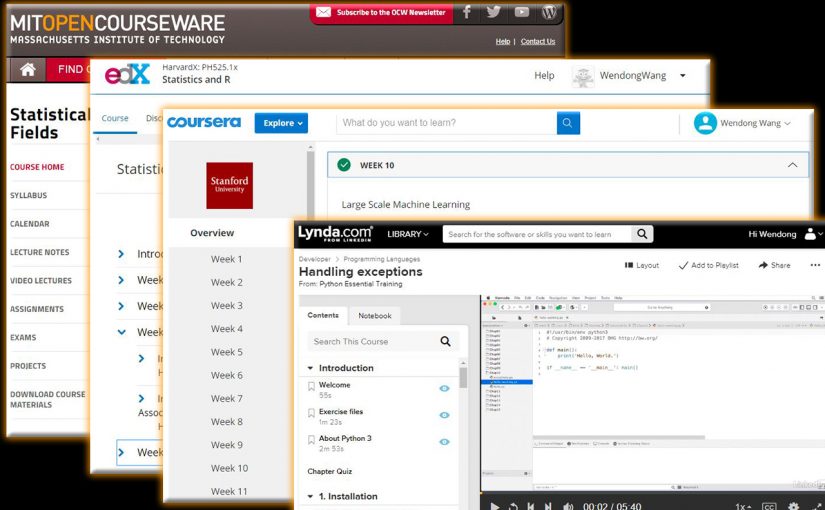Online courses have been around for a while. MIT Open Course Ware (OCW), established in 2001, is one of the earliest examples. In OCW, the videos of the lectures are recorded and posted online, as well as some of the course materials such as lecture notes and homework assignments. However, the structure of the courses is still based on traditional classroom learning. The online learners get partial learning experiences of those who actually took part in the classroom. Although online, these courses are not designed for online learners.
Recently, I took a few online courses in Cousera and edX, two major online education platforms. On Coursera, the Machine learning course by Andrew Ng at Stanford University has over 2.7 million people enrolled and over 120 thousand ratings (course completion). On edX, the Statistics and R by Rafael Irizarry at Harvard has over 200 thousand enrollment (no data on the number of people completed). Both courses are free. But if you want a certificate, the machine learning course costs 71 euros, and the Statistics and R costs 99 US dollars.
Neither of the courses has any midterm or final exams. It makes you think whether these exams are helpful for education in the first place. Homework assignment already provides the test and feedback one needs to assess if one understands what is taught in the lectures. Arguably, midterms and final exams serve only to increase the stress level of students, which could be counterproductive for learning.
Moreover, moving a course online redefines the idea of peers. People can learn the course anytime and anywhere. As a result, one’s peer group could be of any age. In this sense, education has finally moved from the industrial age to the information age. To paraphrase Sir Ken Robinson, an iconic feature of manufacturing in the industrial age is the batch number or the date of production, and in the realm of education, it is the year (age) of the class. The problem with education at the industrial scale is that people differ, and hence the age of a student is not always a good indicator of his/her learning ability/speed and much less of his/her learning style. Online courses give people more control over their learning and hence more responsibility in his/her own education. It is liberating, but it can be terrifying as well. Given so many online courses, what should one take?
